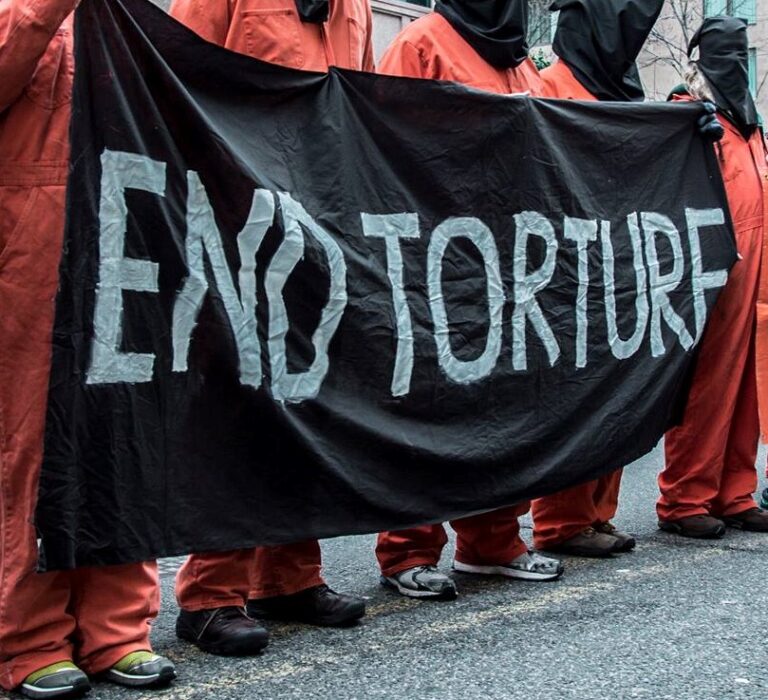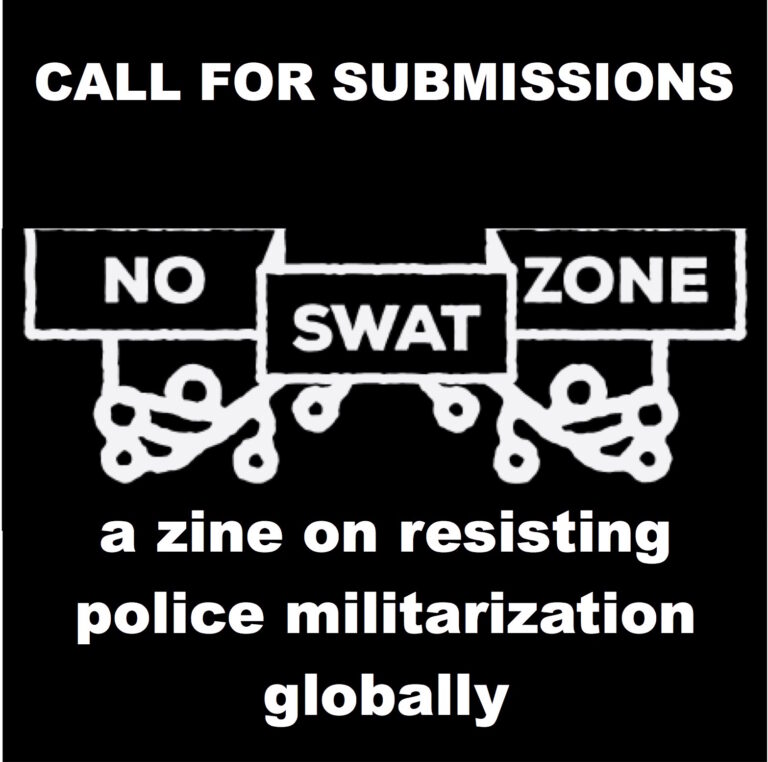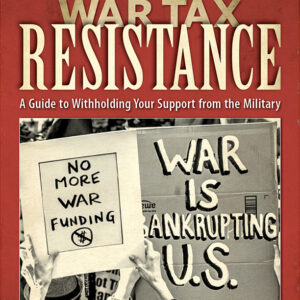WRL Endorses Statement of Unity by Korean Americans and Allies on the Historic Inter-Korean Summit and the U.S.-North Korea Summit
The full statement and endorsement is below and can also be found here.
Since the historic April 27 summit between the leaders of North and South Korea at Panmunjom, longstanding tensions and war threats on the Korean peninsula have given way to the promise of peace and reconciliation. Soon, another historic summit, between the United States and North Korea, will take place in Singapore. The two parties, which not too long ago were on the brink of war, will finally sit down to discuss a peaceful settlement to the Korean War. All eyes of the world will be on this momentous event, which could determine not only the fate of the Korean peninsula and Northeast Asia but also the prospect of global peace.
We—Korean Americans who have long fought for peace and the self-determined unification of the Korean peninsula, and allies who stand on the side of peace and justice and share a critical stake in the struggle for peace in Korea—wish to make clear our views on the recent inter-Korean summit and the upcoming U.S.-North Korea summi.
1. We applaud the Panmunjom Declaration for Peace, Prosperity, and Unification of the Korean peninsula.
In the Panmunjom Declaration, the leaders of North and South Korea “solemnly declared before the 80 million Korean people and the whole world that there will be no more war on the Korean Peninsula and thus a new era of peace has begun.” They also pledged to work together for independent unification.
The two leaders held hands as they crossed back and forth over the military demarcation line, demonstrating that the arbitrary line no longer has the power it once possessed as a symbol of division and confrontation. Should the governments of North and South Korea as well as the 80 million Koreans on the peninsula and the diaspora come together to implement the Panmunjom Declaration, we can realize peace, prosperity, and unification of the Korean peninsula.
2. We welcome the U.S.-North Korea summit.
We hope the scheduled U.S.-North Korea summit will end seven decades of hostile relations between the United States and North Korea and usher in a new era of peace—on the Korean peninsula, in Northeast Asia as well as for the rest of the world.
We recommend the following:
The United States and North Korea should agree to denuclearize the Korean peninsula and faithfully carry out the agreement.
In the Panmunjom Declaration, North and South Korea “confirmed the common goal of realizing, through complete denuclearization, a nuclear-free Korean Peninsula.” Denuclearization of the Korean peninsula means not only eliminating North Korea’s nuclear weapons but also denuclearizing the land, air, and seas of the entire peninsula. This is not North Korea’s obligation alone. South Korea and the United States, which has in the past introduced and deployed close to one thousand tactical nuclear weapons in the southern half of the peninsula, also need to take concrete steps to create a nuclear-free peninsula.
The plan to “denuclearize the Korean peninsula” is clearly outlined in the following past agreements:
- The 1992 Joint Declaration of South and North Korea on the Denuclearization of the Korean Peninsula;
- The 1994 Agreed Framework between the USA and DPRK; and
- The 2005 Joint Statement of the Fourth Round of the Six Party Talks.
In the 2005 Joint Statement of the Six Party Talks, North Korea “committed to abandoning all nuclear weapons and existing nuclear programs,” while the United States “affirmed that it has no nuclear weapons on the Korean Peninsula and has no intention to attack or invade the DPRK with nuclear or conventional weapons,” and South Korea “reaffirmed its commitment not to receive or deploy nuclear weapons in accordance with the 1992 Joint Declaration of the Denuclearization of the Korean Peninsula, while affirming that there exist no nuclear weapons within its territory.”
In keeping with the recent inter-Korean summit, the U.S.-North Korea summit should produce an agreement for the “complete denuclearization of the Korean peninsula” and ban the testing, production, reception, possession, storage, stationing, and/or use of nuclear weapons on the entire Korean peninsula. Moreover, the United States should stop all military action and exercises that deploy or introduce its strategic assets on the Korean peninsula and abolish its nuclear umbrella over South Korea.
Genuine peace on the Korean peninsula, which has housed nuclear weapons in both the North and the South and has been the site of acute military tensions for decades, should set a historic precedent and lead to global nuclear disarmament. Starting with the United States, all nuclear powers should take concrete steps to create a nuclear-free world.
A peace treaty is necessary for a lasting peace system on the Korean peninsula.
he Panmunjom Declaration states, “During this year that marks the 65th anniversary of the Armistice, South and North Korea agreed to actively pursue trilateral meetings involving the two Koreas and the United States, or quadrilateral meetings involving the two Koreas, the United States and China with a view to declaring an end to the War, turning the armistice into a peace treaty, and establishing a permanent and solid peace regime.”
After the Korean War, the United States and North Korea signed an armistice that established a highly unstable system that has been at the root of all subsequent war threats on the Korean peninsula. It’s time to declare an end to the Korean War and replace the armistice with a peace treaty to build a stable and lasting peace system on the Korean peninsula. Only a peace treaty will prevent further threats of nuclear and conventional war on the Korean peninsula.
The United States and North Korea should take immediate mutual steps to prevent military conflict and alleviate tensions. They should establish and maintain a military hotline and communications channel and halt all military exercises and other provocative actions. The United States should withdraw the THAAD missile defense system in South Korea. And in step with North and South Korea, which have agreed to “carry out disarmament in a phased manner” in the Panmunjom Declaration, U.S. Forces in Korea should take corresponding measures to reduce its troops.
The United States and North Korea should end hostilities and normalize relations.
The 2000 US-DPRK Joint Communique states, “Recognizing that improving ties is a natural goal in relations among states and that better relations would benefit both nations in the 21st century while helping ensure peace and security on the Korean Peninsula and in the Asia-Pacific region, the U.S. and the D.P.R.K. sides stated that they are prepared to undertake a new direction in their relations.”
After agreeing to denuclearize the Korean peninsula and replace the armistice with a peace treaty, the United States and North Korea should begin talks to establish normal relations. As they did in the 2000 Joint Communique, the United States and North Korea should reaffirm “principles of respect for each other’s sovereignty and non-interference in each other’s internal affairs” and a “commitment to make every effort in the future to build a new relationship free from past enmity.” The United States and North Korea should normalize relations and promote civilian exchanges in the areas of economy, culture, science, education, sports, and travel to foster mutual understanding between the peoples of both countries.
Above all, the United States needs to abolish its seven-decade policy of hostility and sanctions that isolate North Korea. It should lift all sanctions tied to North Korea’s nuclear program, take North Korea off the list of state sponsors of terrorism, and unfreeze North Korea’s assets. It should allow U.S. citizens to freely travel to North Korea. The United States and North Korea should also cooperate to recover the remains of U.S. servicemen in North Korea from the time of the Korean War as a step to addressing unresolved humanitarian issues and ending hostile relations.
3. We urge Washington’s political leaders to put aside party politics for peace.
Past negotiations between the United States and North Korea have yielded meaningful moments of cooperation. There have been times when both sides made significant compromises with the shared goal of overcoming past hostilities and moving toward normalizing relations. They have produced outstanding agreements—the 1993 DPRK-U.S. Joint Statement, the 1994 Agreed Framework, the 2000 U.S.-DPRK Joint Communique, and the 2005 Joint Declaration of the Six Party Talks—that outline a path for resolving the nuclear crisis on the Korean peninsula, creating a lasting peace system, and normalizing relations between the two countries.
However, none of these agreements were implemented. As a result, mistrust between the United States and North Korea only deepened and ultimately led us to the brink of nuclear war. With each change in administration in the United States, hard-won agreements made by the previous administration were essentially scrapped as the incoming administration adopted a default anti-North Korea posture. In light of this history, we have concerns about whether an agreement produced by the upcoming U.S.-North Korea summit will actually be honored by the current and future administrations. Trump’s withdrawal from the Iran nuclear deal underscores this concern.
The Trump administration should approach the upcoming summit with North Korea with sincerity and a commitment to carrying out whatever agreement is reached. We also urge Congress to put aside partisan interests in the historic interest of achieving peace in Korea and the world. We urge Congress to resolve to support the Panmunjom Declaration between North and South Korea and the upcoming U.S.-North Korea summit.
4. We stand with all who struggle for a just and peaceful world.
The actions of the Trump and previous administrations have been detrimental to peace in the world. The United States is responsible for endless war in Afghanistan, Syria and Yemen, bloodshed in Gaza, and escalating tension with Iran. While it pours billions of dollars into waging wars and maintaining troops abroad, its people face widespread unemployment and austerity programs that cut them off from decent education, healthcare and housing. U.S. militarism abroad has also led to increased militarization of the police and state-sanctioned violence against communities of color and gender non-conforming people at home.
We stand with people of conscience everywhere who defend peace, self-determination, and justice. It is our hope that the Korean peninsula–once a land of strife, brutalized by over a century of colonization, division and war–will become a source of strength and inspiration for all as a beacon for peace, reconciliation, and unification in the twenty-first century.
Signed,
Korean American Organizations (In alphabetical order)
615 U.S. Midwest Committee (6. 15 공동선언실천 미국중부위원회)
615 U.S. New York Committee (6.15 공동선언실천 뉴욕지역위원회)
615 U.S. West Coast Committee (6.15 공동선언실천 미서부위원회)
Action One Korea (AOK)
Channing and Popai Liem Education Foundation (임창영 ·이보배 교육재단)
Citizen for Equality, Peace And Liberation (평등평화해방)
Citizens Fighting for Social Justice (정상추 네트워크)
Coalition of Koreans in America (미주희망연대)
Deoham Korean American Community Church (시카고 더함교회)
Eclipse Rising
Fight For Voter’s Rights (유권자 권리를 소중히 여기는 사람들의 모임)
Hella Organized Bay Area Koreans (호박)
Hope Coalition of New York (희망세상 뉴욕모임)
Houston Sewol HAMBI (휴스턴 세월호 함께 맞는 비)
Korean American Alliance for Peace on the Korean Peninsula (한반도 평화를 위한 미주동포연대)
Korea Culture and Heritage Society of New York (민족문제연구소 뉴욕지부)
Korea is One (우리는 하나)
Korea Policy Institute (코리아정책연구소)
Korean American National Coordinating Council (재미동포전국연합회)
Korean American Women Veterans Association (한국계 여성 제대 군인 모임)
Korean Americans for Social Justice – Chicago (시카고 한인 민주연대)
Korean Peace Alliance (진보의 벗)
Minjung Solidarity of New York (민중당 뉴욕연대)
NANUM Corean Cultural Center (우리문화나눔회)
National Association of Korean Americans (미주동포전국협회)
National Institute of Hahm Seokhon Philosophy, DC, Indianapolis, NY, Hahm Seokhon Peace Center (함석헌사상연구회)
Network for Peace and Unification in USA (평화와 통일을 위한 연대)
NY/NJ People in Solidarity with the Family of the Sewol Ferry; S.P. Ring New Jersey (뉴욕 뉴저지 세월호를 잊지않는 사람들의 모임)
Nodutdol for Korean Community Development (노둣돌)
One Corea Now
One Heart for Justice (샌프란시스코 공감)
Out of My Ultari Now (소식지 ‘내 울타리 밖에서는 지금’)
Pan-Korean Alliance for Reunification in USA (조국통일범민족연합 재미본부)
Peace21.org (내일을 여는 사람들)
Peace and Unification Action of Boston (한반도의 평화와 통일을 위한 보스턴 동포들의 행동)
Rohjjang Lovers, San Francisco (로짱러버스)
Seattle Evergreen Coalition (시애틀 늘푸른연대)
SoCal Organized Oppression-Breaking Anti-Imperialist Koreans (수박)
Center for the Study of Korean Christianity (한국기독교연구소, 시카고)
U.S. Support Committee for Korean Prisoners of Conscience (미주 양심수후원회)
Woori Madang, Chicago (우리마당)
World for People, Los Angeles (엘에이 사람사는 세상)
Young Korean Academy of New York (미주 흥사단 뉴욕지부)
녹두모임(필라델피아)
코네티컷 세사모
콜로라도 세월호 모임
Other Korean Diaspora Organizations (In alphabetical order)
416 Global Network Toronto (세월호를 기억하는 토론토 사람들)
416 Paris (416 해외연대파리)
deCrypt, UK (디크립트-영국)
Ireland Candlelight Action (아일랜드 촛불행동)
Jakarta Candle Action (자카르타 촛불행동)
Korean Minjung Cultur e.V, Europe (한국민중문화모임-유럽)
Korean New Zealanders for a Better Future (더 좋은 세상 뉴질랜드 한인모임)
National Institute of Hahm Seokhon Philosophy, London, UK headquarters (함석헌사상연구회- 영국대표부)
Overseas Supporters of Korean Schools in Japan (해외 조선학교 지킴이)
Remembering Sewol, UK
Remembering Sewol Germany (NRW) (세월호를 기억하는 재독 NRW 모임)
Remembering Sewol Sydney (416 세월호를 기억하는 시드니 행동)
Sasase Ottawa (사람사는 세상 오타와)
Solidarity of Korean People in Europe (한민족유럽연대)
S.P.Ring Solidarity (스프링세계시민연대)
Vienna Culture Factory (비엔나 문화 제작소)
Endorsing Individuals
Reverend Jesse Jackson, Civil Rights Leader and Founder of Rainbow/PUSH
Professor Noam Chomsky, University of Arizona and Massachusetts Institute of Technology
Jill Stein, Green Party presidential nominee 2012, 2016
Endorsing U.S. Organizations (In alphabetical order)
About Face: Veterans Against the War
Alliance of Scholars Concerned about Korea
American Friends Service Committee
ANSWER Coalition
Anti-War Committee, Minnesota
Asian Pacific American Labor Alliance (APALA), Seattle Chapter
Bayan USA
Boston College Center for Human Rights and International Justice
Brandywine Peace Community, Philadelphia PA
Broome Tioga Green Party
Catholic Worker
Chelsea Uniting Against the War, Chelsea Massachusetts
Coalition for Peace Action
CODEPINK
Committees of Correspondence for Democracy and Socialism
Dallas Peace and Justice Center
End the Wars Committee of Peace Action Wisconsin
Environmentalists Against War
Fellowship of Reconciliation
Freedom Forward
Friends of Iran’s Art and Culture
Global Network Against Weapons and Nuclear Power in Space
Global Peace Forum
Granny Peace Brigade, New York
Grassroots Global Justice
Greater Boston Chapter of the Green-Rainbow Party
Hawai’i Peace and Justice
Institute for 21st Century International Relations
International Action Center
International League of People’s Struggles, US
Justice for Muslims Collective
Knowdrones.com
Korean Quarterly
Legacy of Equality, Leadership and Organizing (LELO)
Martín-Baró Fund for Mental Health and Human Rights
Massachusetts Peace Action
Mid-Missouri Fellowship of Reconciliation
Military Families Speak Out
New Jersey Peace Action
Oregon Physicians for Social Responsibility
Peace Action
Peace Action Maine
Peace Action Manhattan
Peace Action New York State
Peace Action San Mateo County
Peace and Justice Center of Eastern Maine
Peace and Justice Committee of Uptown Progressive Action, New York NY
Peace and Social Concerns Committee, Central Philadelphia (Quakers)
Peaceworkers, San Francisco CA
PeaceWorks of Greater Brunswick, Maine
Philadelphia Committee for Peace and Justice in Asia and the Pacific
Popular Resistance
Presbyterian Church USA
Presbyterian Peace Network for Korea
Progressive Democrats of America, San Francisco Chapter
Project South
RootsAction.org
September 11th Families for Peaceful Tomorrows
Show Up! America
United for Justice with Peace, Boston
United for Peace and Justice
Upstate New York Drone Action
US Labor Against War
US Peace Council
Veterans For Peace
Veterans For Peace / Chapter 021 (Northern New Jersey)
War Prevention Initiative
War Resisters League
Western States Legal Foundation
Win Without War
Women Against Military Madness
Women Cross DMZ
Women’s International League for Peace and Freedom, Corvallis, Oregon branch
Workers World Party
World BEYOND War
Young Greens of UMass Boston
Endorsing International Organizations (In alphabetical order)
Asia-Wide Campaign against U.S.-Japanese Domination and Aggression of Asia, Japan
Association for Protection of Democratic Rights, India
Association of Second Generation of A-bomb Survivors, Japan
Canadian Voice of Women for Peace
Coop Anti-War Cafe Berlin, Heinrich Buecker, Germany
Global Rights of Peaceful People, Italy, Spain, Germany, Netherlands, Ireland, Ukraine
Humanitarian Battalion of Ireland and UK
Hystorical and Cultural Center Mobius, Ireland
Just Peace Committee, Vancouver, Canada
Military Bases and Women Network, Japan
New Zealand DPRK Society
People Against War Network, Ireland – UK
Roudousya Kyoutou, Japan
Science for Peace, Canada
Slobodan Milosevic International Committee, Hungary, Russia, U.S., Germany
Solidarity Labor Union, Yamaguchi, Japan
Yamaguchi City People to Accomplish the Constitution of Japan
More Endorsing Individuals (In alphabetical order by last name)
Dr. Tim Anderson, University of Sydney, Hands off Independent Korea (DPRK), Australia
Máire Úna Ní Bheaglaoich, People’s Movement and Peace and Neutrality Alliance
Leo Chang, Solidarity Committee for Democracy and Peace in Korea
Cindy Domingo, US Women and Cuba Collaboration
Hassan El-Tayyab, Policy and Organizing Director of Chicago Area Peace Action
David Gibson, Peacehome Campaigns
June and John Kelly, independent researchers and journalists (Ireland)
Gaseul Jee, Overseas Supporters of Korean Schools in Japan
Susan Lee, Justice for Sewol victims activist and artist (Australia)
Andrew Leong, JD, Associate Professor, Philosophy Department, UMass Boston
Joe Lombardo, Co-coordinator, United National Antiwar Coalition
M. Brinton Lykes, Ph.D., Professor of Community-Cultural Psychology, Boston College
Robyn Magalit Rodriguez, National Alliance for Filipino Concerns
Koohan Paik, International Forum on Globalization
Dr. Han S Park, President of Reuniting Families, Inc.
Arnie Saiki, Moana Nui Action Alliance
Rudy Simons, Peace Action Michigan, Korean War U.S. Army veteran
Aaron Tovish, Executive Director, Zona Libre
Share







 War Tax Resistance: A Guide To Withholding Your Support from the Military
War Tax Resistance: A Guide To Withholding Your Support from the Military